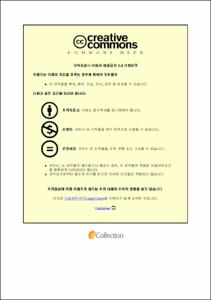윤리적 리더십과 창의성 간의 관계에서 공유리더십과 LMX 차별화의 역할에 관한 연구
- Abstract
- The organizations have turned to a team-based work structure to breed creativity facing the age of rapid change. The scholars have set about exploring how to bring creativity among employees and, moreover, how to develop creativity among teams. Amount of research indeed proved the supportive role of leadership in promoting creativity. Be identified issues and questions of individual creativity and team creativity, and ethical leadership remains largely space unexplored. Alongside hierarchical leadership, the effectiveness of shared leadership to creativity and innovation has been emphasized. Moreover, when traditional top-down leadership distributes to shared leadership, the group diversity may become contingent. LMX differentiation (LMXD) within the team is expected in a teamwork context. LMXD may impair social interaction.
In sum, this study proposed a homologous model and across level moderated mediation model attempted to contribute to the extent ethical leadership, shared leadership, leader-member exchange, and creativity literature in several ways: 1) this study highlighted ethical leadership as an antecedent to stimulate shared leadership; 2) this study followed the calling for the research on vertical and shared leadership’s relationship by exploring the ethical leadership’s main effect and the shared leadership’s mediating effect; 3) this study relied on allocation preferences theory to discuss the contingency effect of LMX differentiation (LMXD) to fulfill the path and relations between ethical and shared leadership; 4) this study based on role-theory perspective and social-relational and cognitive mechanism to explain how ethical leadership influences team members and team creativity through the mediation of shared leadership; 5) with the theorization of individual perspective and group perspective creativity, this study target to better understand the different levels of creativity and different pathways that ethical leadership at different levels relate to creativity with the interaction effect of LMXD through shared leadership.
With samples rated by 233 team members distributed in 30 teams, this study conducted two procedure analyses to examine the hypotheses. The results showed that both individual perceptions of ethical leadership and group ethical leadership positively relate to shared leadership. For team creativity, consistent with the predictions, ethical leadership positively affected team leader reported member creativity. This study recognized the partial mediating role of shared leadership on the team aggerated ethical leadership effect on team creativity. The result also recognized the full mediating role of shared leadership on the individual perceived leaders’ ethical leadership effect on team creativity. Besides, team LMXD negatively moderated the relationship between ethical and shared leadership on both individual and team levels. Low LMXD in the team could enhance and more potent the effect of ethical leadership on shared leadership. Furthermore, it is found that team LMXD negatively moderated the indirect impact of ethical leadership on members and team creativity via shared leadership. Specifically, for different levels, the influence is various.
The analysis offers significant theoretical and practical implications. This study is the first to examine vertical and shared leadership through the IPO model with the interaction effect of LMXD on the relationship between vertical and shared leadership. With the aim to discuss the catalytic agent mechanism of shared leadership, this study will contribute to fruitfully the research area of ethical leadership and shared leadership. Moreover, this study suggested that additional antecedents, moderator, and mediator variables expand the nomological networks of the various multilevel creativity constructs. Besides, through the multilevel moderated mediation model and comparing the effects, this study offered empirical findings to address the role of leadership and leader-member relationship in the creativity literature.
|본 논문은 팀 리더의 윤리적 리더십이 팀 멤버의 개인 창의성/팀 창의성 과 원칙 뿐 아니라, 개인 창의성/팀 창의성에 영향을 끼 치는지에 대한 궁금증에서 시작되었다. 그리고, 윤리적 리더십이 팀 멤버의 개인 창의성/팀 창의성에 영향을 주게 된다면, 어떤 메커니즘을 통해 영향을 주는지 연구하고자 하였다.
이를 위해, 윤리적 리더십, 팀 멤버의 개인 창의성/팀 창의성, 공유리더십, LMX 차별화 등과 관련된 기존 연구를 기반으로 아래와 같은 주요 가설을 수립하였고, HRDK총30팀 중에 233부의 설문지를 분석에 사용하였으며 SPSS 25.0 과Mplus 8.0을 사용하여 설문 자료를 분석하였다.
첫째, 윤리적 리더십은 공유리더십의에 긍정적인 영향을 줄 것이다.
둘째, 윤리적 리더십은 팀 멤버의 개인 창의성에 긍정적인 영향을 줄 것이다.
셋째, 윤리적 리더십은 팀 창의성에 긍정적인 영향을 줄 것이다.
넷째, 공유리더십은 팀 멤버의 개인 창의성에 긍정적인 영향을 줄 것이다.
다섯째, 공유리더십은 팀 창의성에 긍정적인 영향을 줄 것이다.
여섯째, 공유리더십은 윤리적 리더십과 팀 멤버의 개인 창의성의 관계를 매개할 것이다.
일곱째, 공유리더십은 윤리적 리더십과 팀 창의성의 관계를 매개할 것이다.
여덟째, LMX 차별화는 윤리적 리더십과 공유리더십의 관계를 조절할 것이다.
뿐만 아니라, 아홉 째와 열째 가설은 윤리적 리더십과 팀 멤버의 개인 창의성/팀 창의성 간의 관계에서 공유리더십의 매개 효과에 대한LMX 차별화의 조절된 매개 효과를 분석하였다.
- Issued Date
- 2021
- Awarded Date
- 2021-08
- Type
- Dissertation
- Alternative Author(s)
- Wang Jue
- Affiliation
- 울산대학교
- Department
- 일반대학원 경영학과
- Advisor
- 김해룡
- Degree
- Doctor
- Publisher
- 울산대학교 일반대학원 경영학과
- Language
- eng
- Appears in Collections:
- Business Administration > 2. Theses (Ph.D)
- 파일 목록
-
-
Download
 200000506225.pdf
기타 데이터 / 2.9 MB / Adobe PDF
200000506225.pdf
기타 데이터 / 2.9 MB / Adobe PDF
-
Items in Repository are protected by copyright, with all rights reserved, unless otherwise indicated.